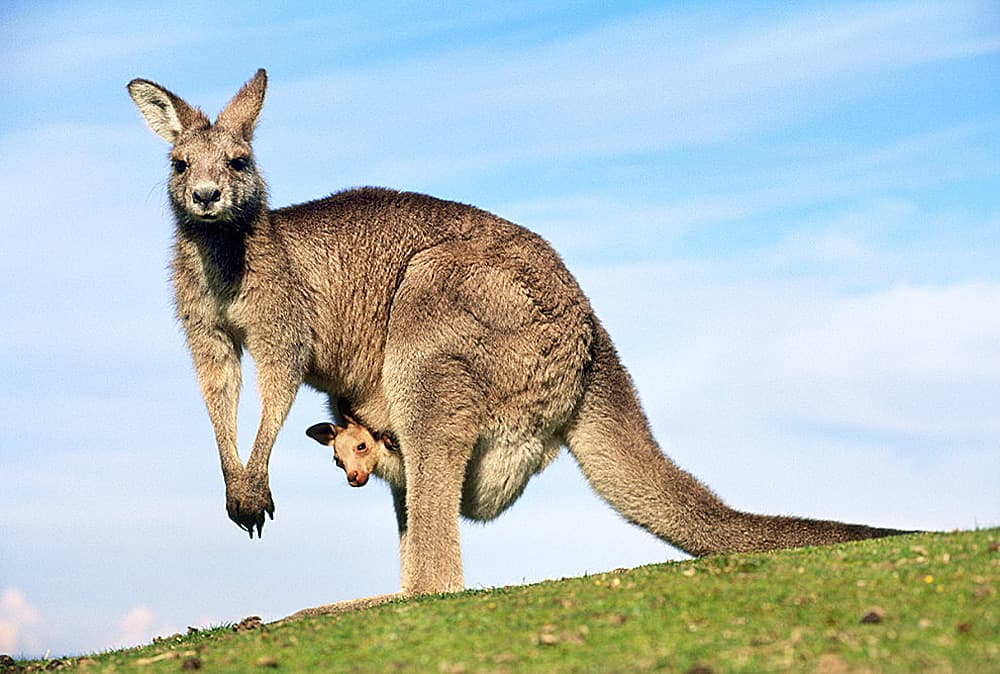
Scientists Ponder How To Curb Kangaroo Flatulence
Scientists Ponder How To Curb Kangaroo Flatulence. Adjusted for body weight, the large marsupials are about as gassy as a horse.
Like most mammals, kangaroos pass gas. But how much?
To find out how much methane kangaroo flatulence is contributing to the atmosphere and what can be done about it, scientists decided to take a closer look at the marsupials’ digestive system.
“We knew that the kangaroos would produce little methane, but certainly not zero, and the question remained as to why,” lead researcher Adam Munn, from the University of Wollongong in South Wales, Australia, said in a press release.Scientists Ponder How To Curb Kangaroo Flatulence
“The main hypotheses behind kangaroos producing little methane have focussed on kangaroos having a unique microbiome that produces less methane, mainly from flatulence rather than burping like cows and sheep,” Munn explained. “But, without wanting to burst the bubble of the microbiologists, our findings suggest otherwise.”
Kangaroos produce a significant amount of methane, researchers found, just not as much as cows and sheep. Adjusted for body weight, the large marsupials are about as gassy as horses.
Methane is less abundant than CO2, but its greenhouse gas effect is more potent.
Kangaroos release comparably less methane than cows and sheep due to the design of their stomach. Cows and sheep are ruminants, herbivores with a special stomach that slowly ferments and breaks down food before digestion.
“Food doesn’t leave that big vat until it’s really broken down to fine particle sizes,” Munn told the Christian Science Monitor. “Then, the fluids and particles all move through the gut at the same pace in a sheep or a cow.”
Marsupials possess a smaller foregut, which acts in a similar manner. But in the kangaroo’s system, fluids are flushed through more quickly as particles hang back. Overall, it is a much faster system.
“We think that the methane is low because of the way food moves through the kangaroo stomach, and not because of a unique gut fauna,” said Marcus Clauss, a zoologist at the University of Zurich in Switzerland.
Researchers did find that kangaroos held to a restrictive diet were forced to digest more slowly and thus produced more methane, closer to the totals seen among bovine and ovine species.
The scientists — whose new research was published in the Journal of Experimental Biology — are now trying to figure out ways to curb the marsupials’ contribution to global warming.
Some have suggested replacing livestock herds with kangaroos, as the marsupials can be used for meat and leather-making. But neither Dunn nor Clauss believe this would make much difference.
A more plausible way forward, they say, would be to design food sources that are more quickly and easily digested by kangaroos.
—
Credit: UPI












